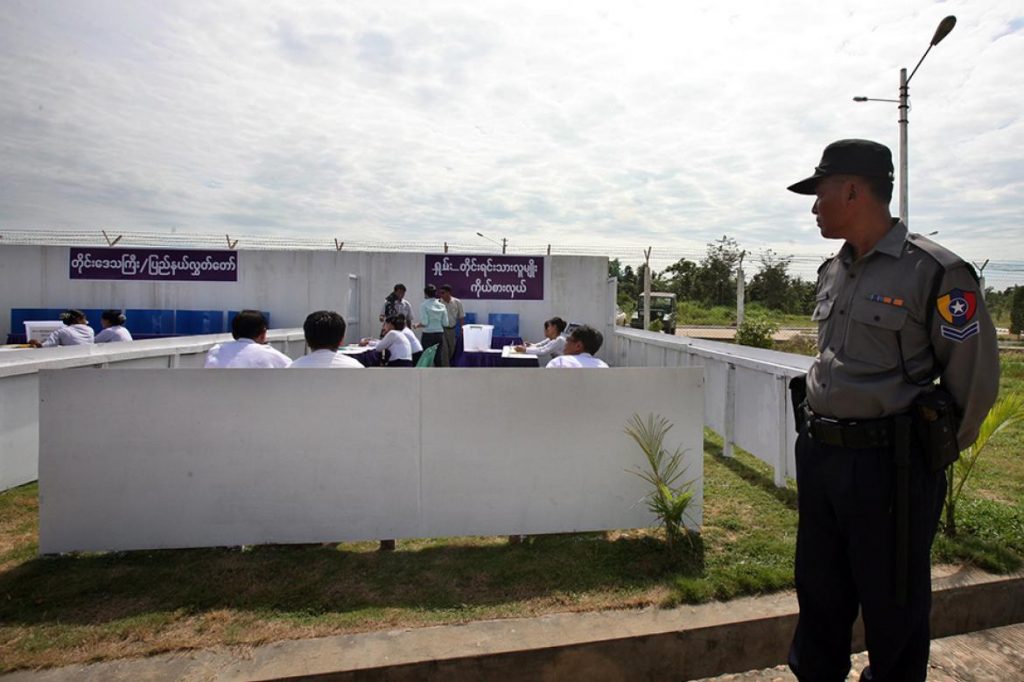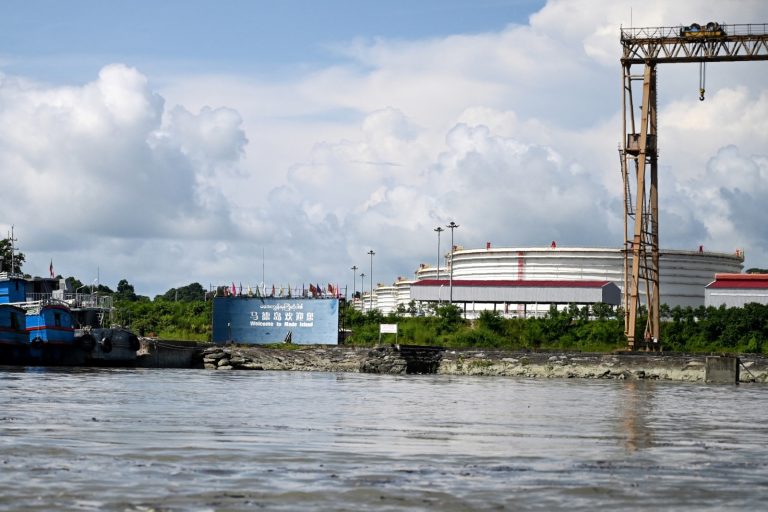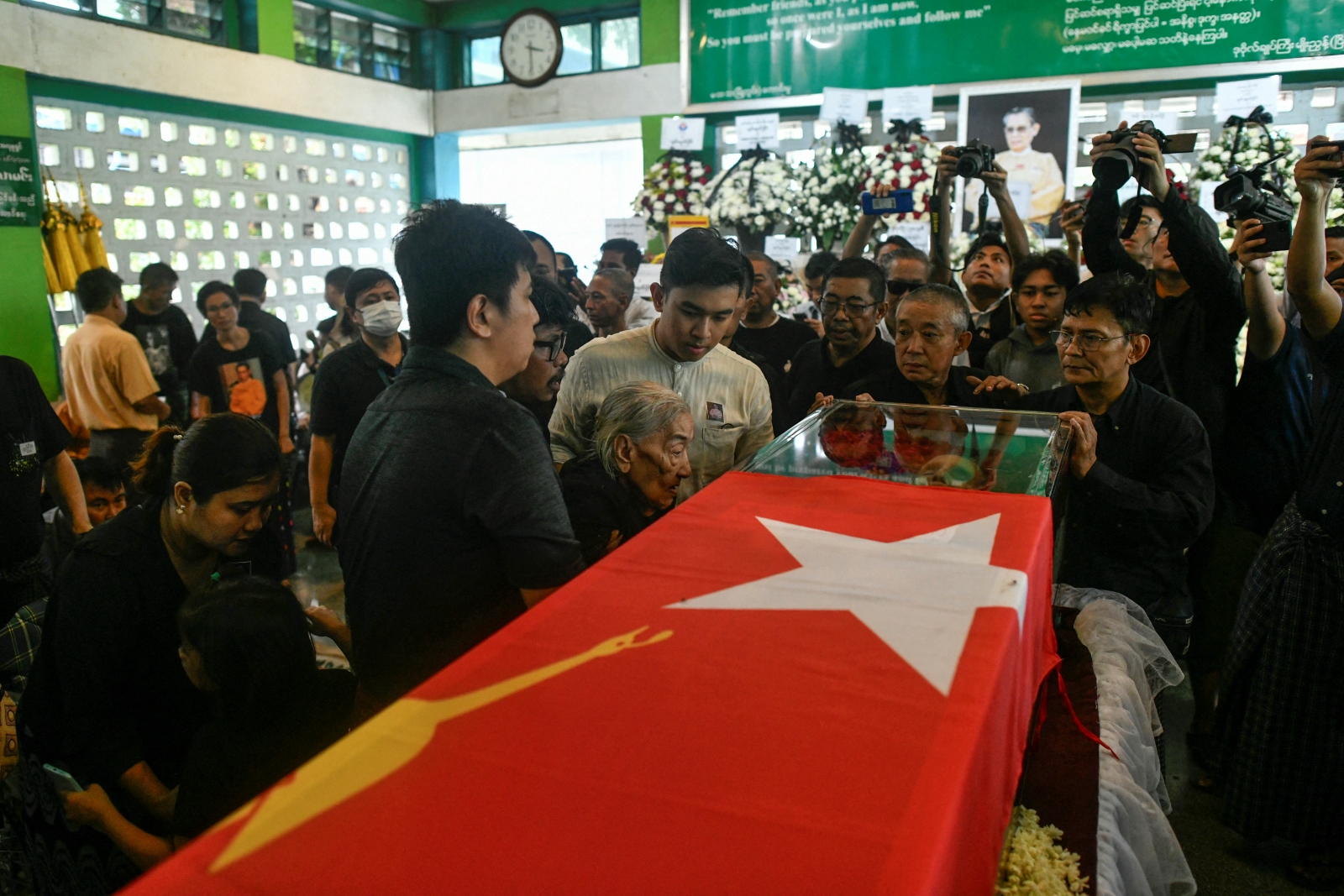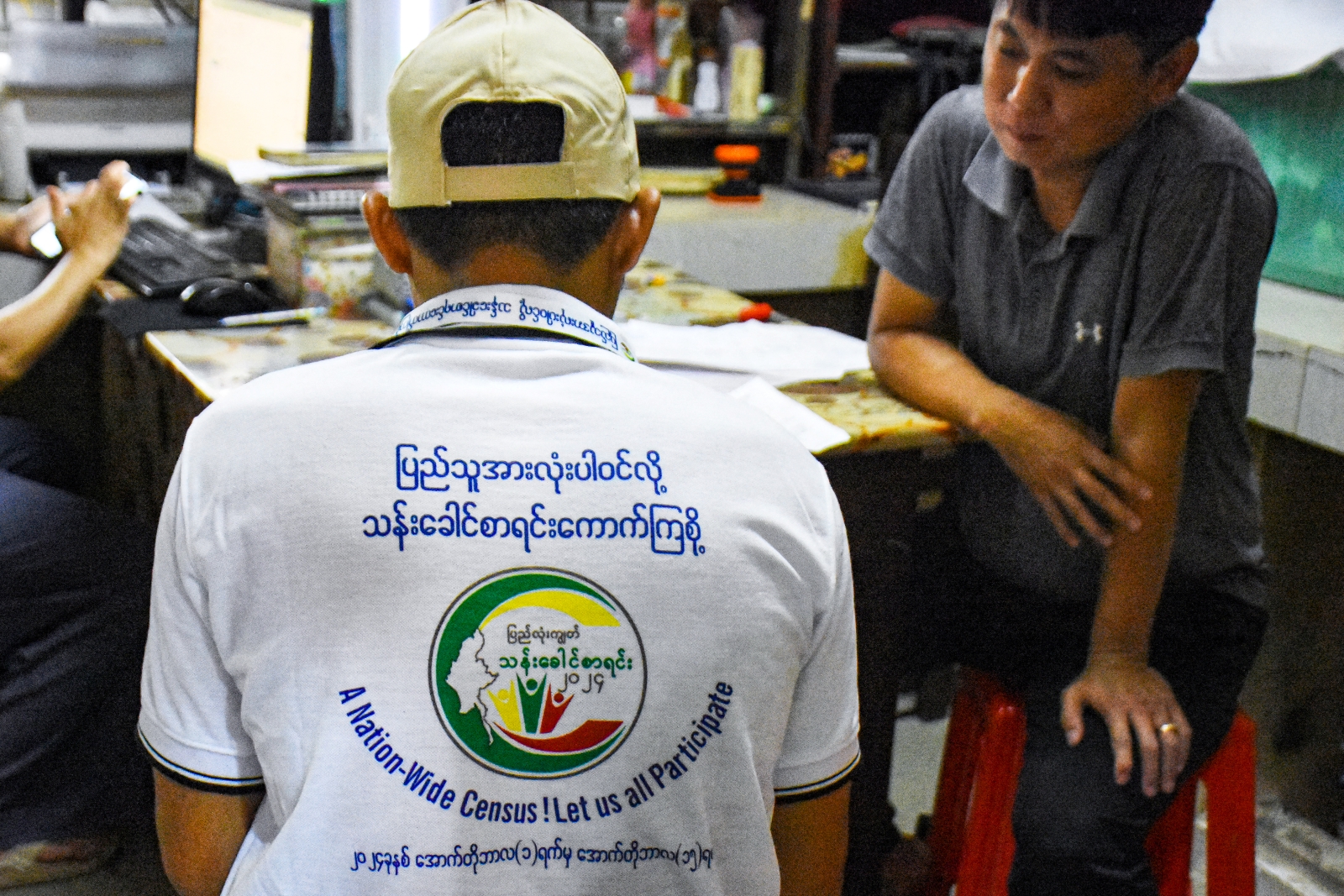Democratic opposition parties are concerned about a decision to deploy members of a special security force at polling stations on election day.
The Ministry of Home Affairs has begun recruiting thousands of civilians for a police auxiliary force to be deployed at polling booths throughout the country on November 8.
The process began last month and will continue until the first week of October, and the recruits will undergo 10 days of training.
The government did not deploy such a force in the 2012 by-elections, the 2010 general election or the 1990 election for a constituent assembly, and the decision to deploy such a force this year has raised concern among opposition parties and voters about the possibility that the force would be used to threaten voters.
U Win Htein, the spokesman for the national League for Democracy, said the party did not understand why there was a need for a police auxiliary force.
“We need to think seriously about what the government intends to do with these special police during the election campaign and on voting day,” U Win Htein told a news conference in Yangon on September 21.
Support more independent journalism like this. Sign up to be a Frontier member.
His comments reflect concern among democratic opposition parties and civil society groups that the auxiliary force might be used to intimidate voters on election day, especially those in rural areas who are not well-educated and do not know how to vote.
There is also concern that many of those being recruited may be supporters of the hardline Buddhist nationalist group, the Association for the Protection of Race and Religion, which has been involved in a bitter exchange of words with the National League for Democracy.
The exchange began after NLD patron U tin Oo Told the September 21 news conference that the association, known by its Myanmar acronym as Ma Ba Tha, was interfering in the party’s campaign activities.
In a statement issued on September 23, Ma Ba Tha dismissed U Tin Oo’s accusation as “groundless”.
“Ma Ba Tha is working for nationalism, religion and race, and is not a follower of any government, party or person,” the statement said.
“For the causes of nationalism, race and religion, we will work hand-in-hand with anyone, while being objectively against any party or person if they bring harm to those causes,” it said.
The statement came two days after the NLD was described as a party backed by “Islamists” at one of the rallies being held by Ma Ba Tha thoughout the country to celebrate the enactment of a package of laws regarded as discriminating against Muslims.
A prominent Ma Ba Tha member in Ayerarwady Region, U Kumara, was quoted as telling a rally in Pathein on September 21 that if a “political party supported and backed by Islamists and foreign countries” won the election it would abolish the four laws.
The concern over the special force follows widespread outrage earlier this year over the use by police of plainclothes vigilantes to brutally disperse protesters near the Sule Pagoda in downtown Yangon.
Images published by newspapers and circulated on social media showed the vigilantes, who were wearing red armbands bearing the word “duty”, beating protesters with batons and grabbing some around the neck after they were arrested and dragged into police trucks.
There is concern that the election force, whose members will carry batons while on duty, might resort to similar behaviour.
The Yangon Region deputy police chief, Police Captain Win Bo, dismissed concerns about the election force.
“People do not need to worry about them; their role is like that of security guards who have an auxiliary role with the Myanmar Police Force,” Win Bo told Frontier.
“They are not allowed to carry guns, only batons,” he said.
The election force was needed to supplement the MPF because of a shortage of personnel.
“We need to recruit more police because the shortage has led to an increase of crime in some areas,” Win Bo said.
He said the MPF had more than 200,000 personnel, including serving and retired officers, a ratio of one member of the force for every 100 people.
Pol Capt Win Bo said senior officers had begun receiving special training in February to prepare for the election. The training was at international standard and included security procedures and election laws. Training had since begun for lower-ranking MPF members.
The MPF said in early September that an election security force of 40,000 was needed for the 40,000 polling stations throughout the country. Captain Win Bo said there had been more than 50,000 applications to join the force by September 25 and those who passed background checks at township level would be referred to state and regional level governments for a final decision.
Those seeking to join the election force must not have a criminal record, be aged between 18 and 60 and residents of the township or ward in which they apply.
The MPF said election force members would receive a monthly salary of K120,000 and a daily food allowance of K1000 and be employed for 30 days from October 15.
There is concern and uncertainty within the MPF over the source of funding for the election force.
A senior police officer in Yangon told Frontier on condition of anonymity that rumours had circulated among police that the Ministry of Home Affairs had declined to fund the election force and its cost would be deducted from the salaries of MPF personnel.
Capt Win Bo denied that members of such groups as the notorious Swann Arr Shin group, which was involved in the violent suppression of the protest movement known as the Saffron Revolution in 2007, would be recruited for the election force.
He was contradicted by a senior officer who requested anonymity, who told Frontier that members of “thuggish” groups, such as Swann Arr Shin, were being recruited for the special force.
The Ministry of Home Affairs was behind the decision to establish the force, he told Frontier.







